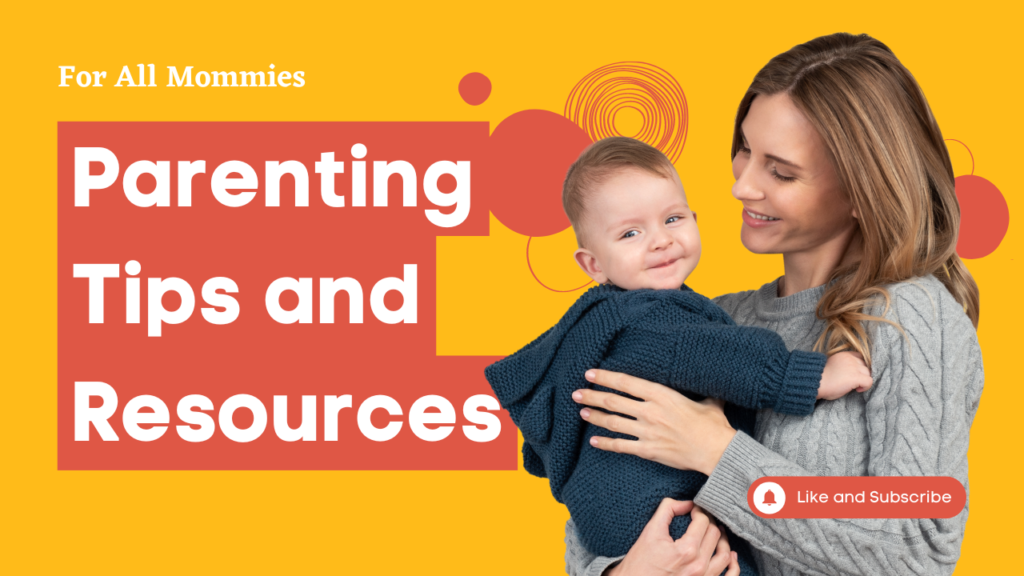
The Realm of Parenting: A Guide for New and Experienced Parents
Parenting is a journey unlike any other, filled with moments of joy, challenge, discovery, and growth. It’s a path that is ever-evolving, much like the children we strive to nurture and guide. Whether you are a new parent navigating the early days of newborn care or an experienced parent looking to connect with others on this shared journey, a successful parenting blog can provide invaluable support, resources, and a sense of community. In this blog, we will explore key areas of parenting, from pregnancy and baby care to child development, family activities, product reviews, and the essential role of parent self-care and relationships.
1. Pregnancy and Baby Care: Laying the Foundation
The journey of parenting begins long before the arrival of the baby. Pregnancy is a transformative time that requires attention to both physical and emotional well-being. Offering guidance on prenatal care is crucial for expecting parents. This includes understanding the importance of a balanced diet, regular exercise, and prenatal vitamins. Discussing the significance of regular medical check-ups and screenings can help ensure a healthy pregnancy.
As the due date approaches, preparing for the baby’s arrival becomes a priority. Guidance on baby gear essentials can alleviate the overwhelming feeling that often accompanies these decisions. From cribs and car seats to strollers and diaper bags, having a clear list of must-have items versus nice-to-haves can make a world of difference. Additionally, sharing tips on setting up a nursery and creating a safe, comfortable environment for the newborn can help parents feel more prepared.
Newborn care is another vital area of focus. Providing information on topics such as feeding—whether breastfeeding, formula feeding, or a combination of both—can help new parents make informed choices. Discussions about newborn sleep patterns, diapering, and understanding developmental milestones in the early months can offer reassurance and practical advice.
2. Parenting Styles and Child Development: Finding What Works for You
Parenting is not a one-size-fits-all endeavor. Different families adopt different approaches based on their values, cultural backgrounds, and individual beliefs. Discussing various parenting styles—such as authoritative, permissive, or Montessori—can help parents understand the range of options available to them. Providing insights into child psychology can further assist parents in understanding their child’s behavior and needs.
Navigating milestones is an integral part of child development. Whether it’s a baby’s first steps, the transition from crib to bed, or the first day of school, these moments are both exciting and challenging. Offering advice on how to support children through these milestones can foster a deeper understanding of child development. For example, discussing how to encourage language development in toddlers or how to support social skills in preschoolers can provide parents with practical tools.
Furthermore, addressing the unique needs of different age groups is essential. Toddlers, for instance, require guidance as they explore their independence, while teenagers may need support in managing social pressures and academic responsibilities. Acknowledging these varied experiences allows for a more comprehensive understanding of the parenting journey.
3. Family Activities and Education: Creating Bonds and Learning Together
Family activities are an excellent way to strengthen bonds and create lasting memories. Providing ideas for fun and educational activities can encourage quality family time. Simple activities, such as cooking together, going on nature walks, or creating art projects, can be both entertaining and educational.
For families interested in more structured learning, offering homeschooling tips and educational resources can be incredibly beneficial. This might include suggestions for curriculum choices, organizing a homeschool day, and balancing academics with play and socialization. Additionally, highlighting community resources, such as libraries, museums, and local events, can provide parents with ideas for educational outings.
It’s also important to address the diverse educational needs of children. Some children may thrive in traditional school settings, while others may benefit from alternative approaches, such as Montessori or Waldorf education. Discussing the pros and cons of these various educational philosophies can help parents make informed decisions based on their child’s unique needs and learning style.
4. Product Reviews: Choosing the Right Tools for the Job
One of the most valuable aspects of a parenting blog is providing honest and thorough product reviews. With countless baby gear options available, from car seats and strollers to toys and educational tools, choosing the right products can be daunting. Sharing personal experiences and detailed reviews can help parents make informed decisions that best suit their family’s needs.
Product reviews should go beyond simply rating items; they should also address practical considerations, such as ease of use, durability, safety, and value for money. For instance, a review of a popular stroller should include not only its features but also how it performs in different settings—such as urban environments versus rural areas—and how easy it is to clean and store.
Additionally, reviews of family-friendly services, such as meal delivery kits or educational subscription boxes, can provide parents with helpful insights. These reviews can be a great way to introduce parents to new products and services that can enhance their parenting experience.
5. Parent Self-Care and Relationships: Nurturing the Nurturers
Amidst the demands of parenting, it’s easy for parents to overlook their own needs. However, self-care is not a luxury—it’s a necessity. A successful parenting blog should emphasize the importance of parents caring for themselves, both physically and emotionally. This might include discussions on finding time for exercise, maintaining a balanced diet, and ensuring adequate sleep.
Mental and emotional well-being are equally important. Parenting can be stressful, and it’s vital to address the impact of stress on both parents and children. Offering tips on stress management, such as mindfulness practices, journaling, or seeking professional support, can help parents maintain their mental health.
Strong relationships are the cornerstone of a healthy family dynamic. This includes not only the parent-child relationship but also the relationship between co-parents or partners. Discussing ways to maintain strong relationships amidst the challenges of parenthood can provide valuable support. This might include communication strategies, date night ideas, or navigating conflicts in a constructive manner.
Additionally, addressing the unique challenges faced by single parents or those in non-traditional family structures can help create a more inclusive and supportive community. By acknowledging the diverse experiences of parents, a blog can foster a sense of belonging and understanding.
Conclusion: Building a Supportive Community
The realm of parenting is vast and ever-evolving, filled with both joys and challenges. A successful parenting blog can provide a lifeline of support, offering guidance, resources, and a sense of community for parents at every stage. By addressing key areas such as pregnancy and baby care, parenting styles, family activities, product reviews, and parent self-care, a parenting blog can become a trusted resource for new and experienced parents alike. Through sharing knowledge, experiences, and encouragement, we can help each other navigate the beautiful, complex journey of parenthood.
